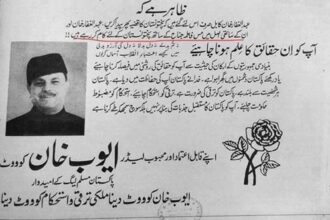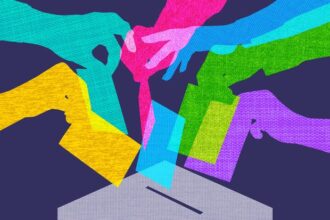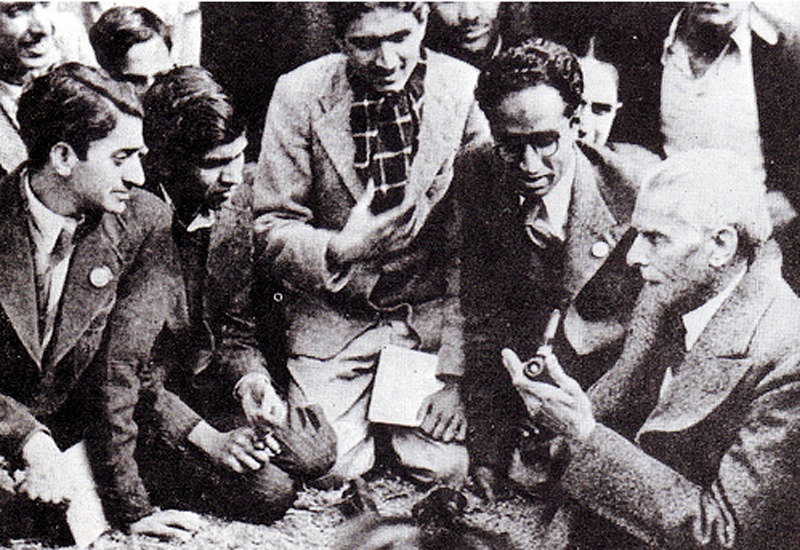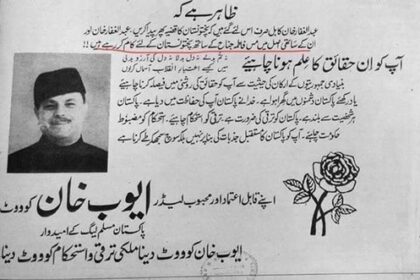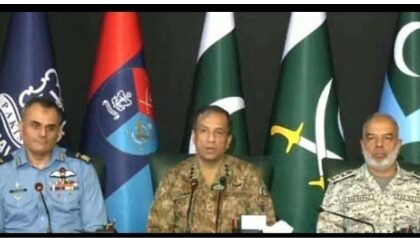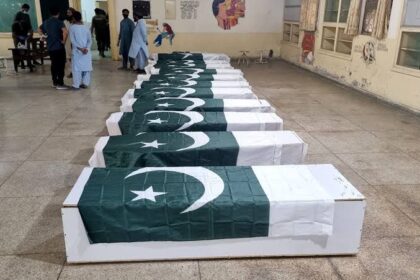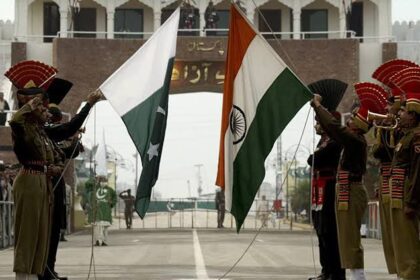What happens when the youth of a nation is silenced in a country where the majority of the population consists of the youth? The organizations which were once fostering political consciousness in the youth are exterminated. The platforms that once existed for them to raise their concerns are banned, and political parties with radical ideologies are endorsed by the state. Those who disdain this neo-colonial and fascist decision, and still try to be vocal about their rights and raise their heads against the tyrants, are beheaded. Their voices are shut, their hands are tied, and their ideas are tarnished. This is not a draconian state, but this is the country where you and I are living today.
The Current Political Crisis in Pakistan
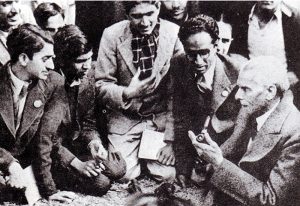
A brief look into the political landscape of Pakistan would tell us that today there is a political crisis. The population of more than 260 million people is like a herd of sheep. This is a statement that might be harsh, but this is the reality. Most of the followers of the parties around us follow their favorite political party and their leaders without even knowing the manifesto of the party, the political ideology, or the vision of the leader. We, as a nation, lack political awareness on a much deeper level. Although the reasons behind this are numerous, a major contributor to our current state is a policy that has made its way from the dark times of Ayub to the tyrant reign of Zia and to our political leaders of today—the ban on student politics.
Some might argue that this decision was to curb the clashes between the right and left factions in universities, which is a genuine concern but cannot be used as an excuse to put a blanket ban on a system of student-led grassroots democratic student unions.
The Role of Student Unions in Pakistan’s Political Landscape
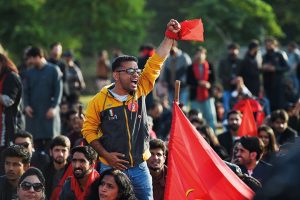
Student unions in Pakistan used to be the place where the leaders of the future were nurtured. They not only contributed to educating the young minds of students with the ideas of the world, but also let them raise their voices and become politically conscious. These were the platforms through which students in the past not only opposed dictators like Ayub and Zia, but also where students raised their voices. These voices wouldn’t stay silent but would roar within the walls of the offices of those in power.
These unions have given us leaders that we see on our TV screens today, representing some of the mainstream political parties, while people are unaware of where they started their journey.
Notable Political Leaders Who Began in Student Unions
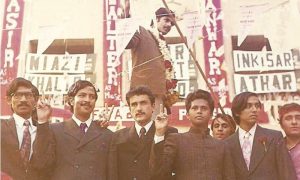
There are several unionists who rose to political prominence. Some of them are Khawaja Saad Rafique (Muslim Student Federation), Sheikh Rasheed Ahmed (initially joined Jamiat-e-Talaba but later left and joined Muslim Student Federation), Ahsan Iqbal (Muslim Student Federation), Javed Hashimi (Muslim Student Federation), Aitzaz Ahsan (People’s Student Federation), Sherry Rehman (People’s Student Federation), and Altaf Hussain (All Pakistan Muttahida Students Organization).
Student politics in Pakistan has undergone a spectrum of transformations. It has also seen periods of mushroom growth and peaks in the 1960s and has faced stringent suppression, censorship, and bans by the state throughout history.
The Rise and Fall of Student Political Movements
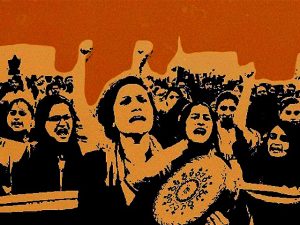
The history of student politics can be traced back to the Muslim Student Federation (MSF), the student wing of the ruling Muslim League. When the Muslim League broke into factions, MSF also saw a decline in power. Then came the Democratic Students Federation (DSF), a political movement established by progressive and left-leaning students in 1949. It became highly influential during the early 1950s and often organized protests and demonstrations. But due to the involvement of its leaders in Gen. Akbar Khan’s coup attempt, the infamous Rawalpindi Conspiracy, DSF was banned by the government.
Then arose the National Students Federation (NSF). It was formed by left-leaning student leaders and initially only participated in addressing issues being faced by students. Later on, NSF peaked when some of its leaders, along with Zulfiqar Bhutto, formed the Pakistan People’s Party (PPP). But after coming into power with the help and support of the students, Bhutto’s attitude towards the student unions changed. His views were rightly put into words by Nadeem Paracha when he wrote:
“Bhutto was of the view that student politics was a highly mutable and volatile creature because political student groups were vulnerable to the sudden changes that could unexpectedly transform them from being friends to becoming foes.”
Although Bhutto was correct about student politics and student unions to some extent—since students through these unions can attain huge power and be exploited, as was seen in the Rawalpindi case—this doesn’t justify banning the formation of such unions in Sindh in 1979 or the blanket ban on student politics by General Zia-ul-Haq in 1984.
Political Manifestos and the Promise of Student Unions

After this decision by Zia to fulfill his wicked ulterior motives, it has been in all parties’ manifestos to unban student unions and foster a culture of grassroots politics where students from all backgrounds can take part. But this proposal also looks like others that are made just to attract the populace. Except for once in 1989, when Mian Muhammad Nawaz Sharif conducted student union elections, but that feat didn’t repeat itself even in later governments of PML-N.
The Role of Student Unions in Addressing Political Defects
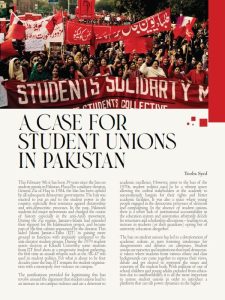
Many of the defects in our current political dynamics can be solved through student unions. There is a lack of leaders who are connected with the general public. Many of the MNAs and MPAs sitting in the assemblies are more like aristocrats, living their extravagant lives in their luxurious mansions, riding their fancy cars with protocols to their offices to make decisions for the lives of the common man, while being alien to such common men and the problems they face. Student unions would provide leaders who come from all backgrounds and would be connected with the people on a much deeper level.
Nepotism in politics has been present since the inception of the country. Feudal politics and the system of family politics would only be carved out of the political scene if a common man can get access to the political arenas. And the only platform that can do so is these student unions.
The Hope for the Return of Student Politics
The hope for the return of student politics and such unions has not vanished. In 2022, the government of Sindh passed a bill lifting the ban on student unions. Private and public educational institutions can form student unions as per the bill. Moreover, in Khyber Pakhtunkhwa, the provincial assembly officially passed a resolution on 5th January 2025, uplifting the ban on the formation of student unions. The resolution is a huge leap forward, considering the need for such platforms in the country, but the implementation of the resolution remains in question. However, the future of Pakistani politics cannot be one without student politics and student unions.

